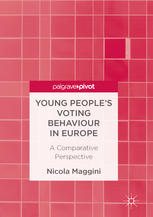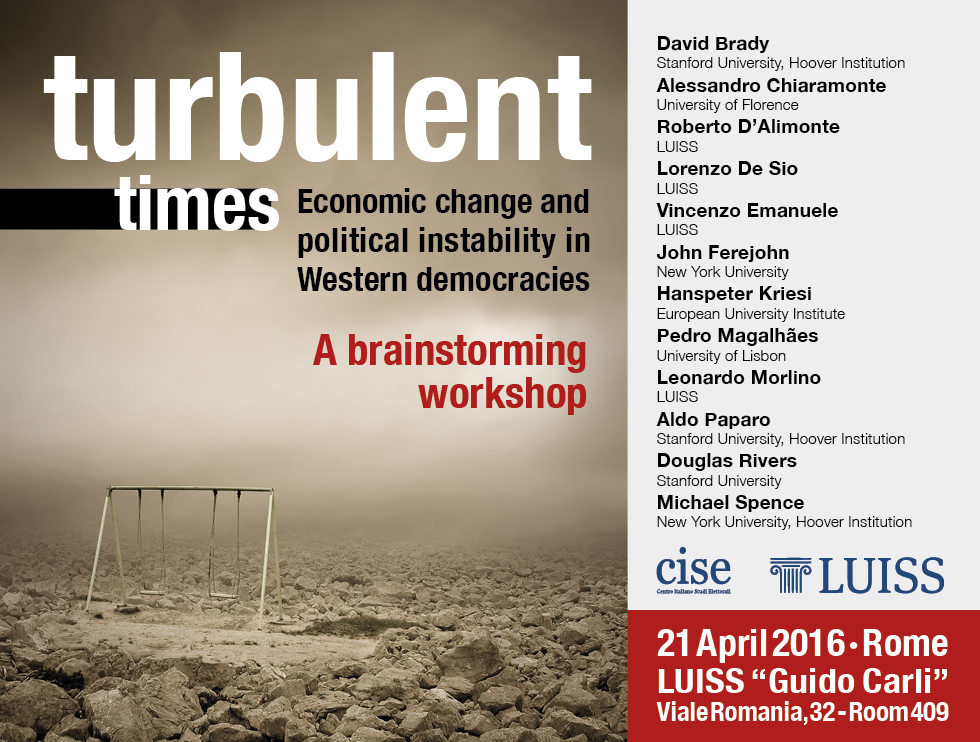Ricerca
-

PTV gap as a new measure of partisanship: a panel-data, multi-measure validation showing surprising partisanship stability
To cite this article: Aldo Paparo & Lorenzo De Sio (2017)…
-

Il comportamento di voto dei giovani in Europa
Con questo articolo inauguriamo una nuova rubrica del sito web CISE,…
-
The risks and opportunities of Europe: How issue yield explains (non-)reactions to the financial crisis
To cite this article: Lorenzo De Sio, Mark N. Franklin, Till…
-
A growing impact of new parties Myth or reality? Party system innovation in Western Europe after 1945
Vincenzo Emanuele e Alessandro Chiaramonte To cite this article: Emanuele, V.…
-

Young People’s Voting Behaviour in Europe. A Comparative Perspective
Nicola Maggini Young People’s Voting Behaviour in Europe. A Comparative Perspective…
-
Follow the Candidates, Not the Parties? Personal Vote in a Regional De-institutionalized Party System
To cite this article: Emanuele, V. and Marino, B. (2016), ‘Follow…
-
Gaining Votes in Europe against Europe?
To cite this article: Emanuele, V., Maggini, N and Marino, B.…
-

Turbulent times – Economic change and political instability in Western democracies
On April 21st, at LUISS Guido Carli, the CISE convened a…
-
Party system volatility, regeneration and de-institutionalization in Western Europe (1945–2015)
To cite this article: Chiaramonte, A., & Emanuele, V. (2015). Party…
-
Vote (de-) nationalisation and party system change in Italy (1948–2013)
To cite this article: Emanuele, V. (2015). Vote (de-) nationalisation and…